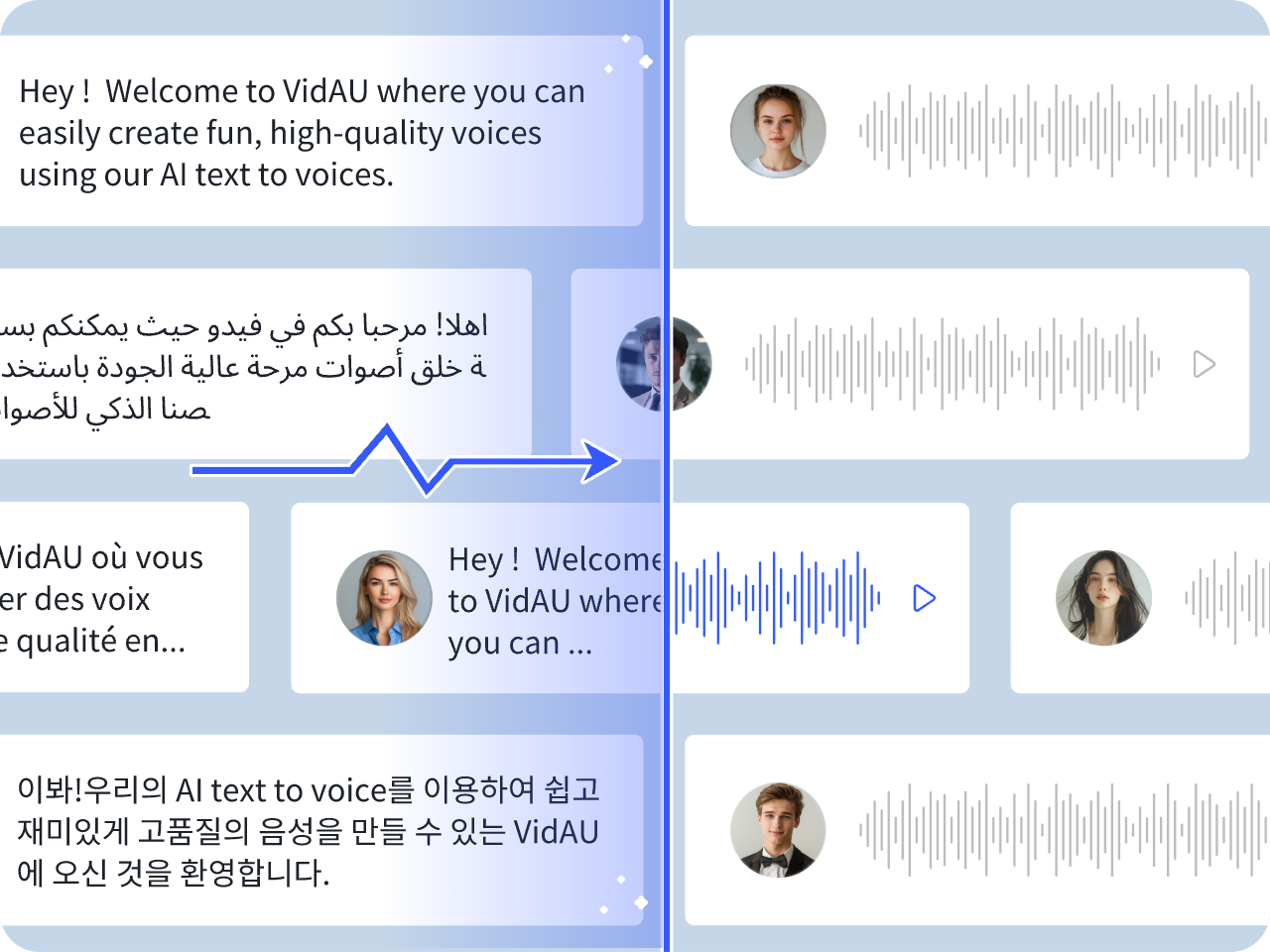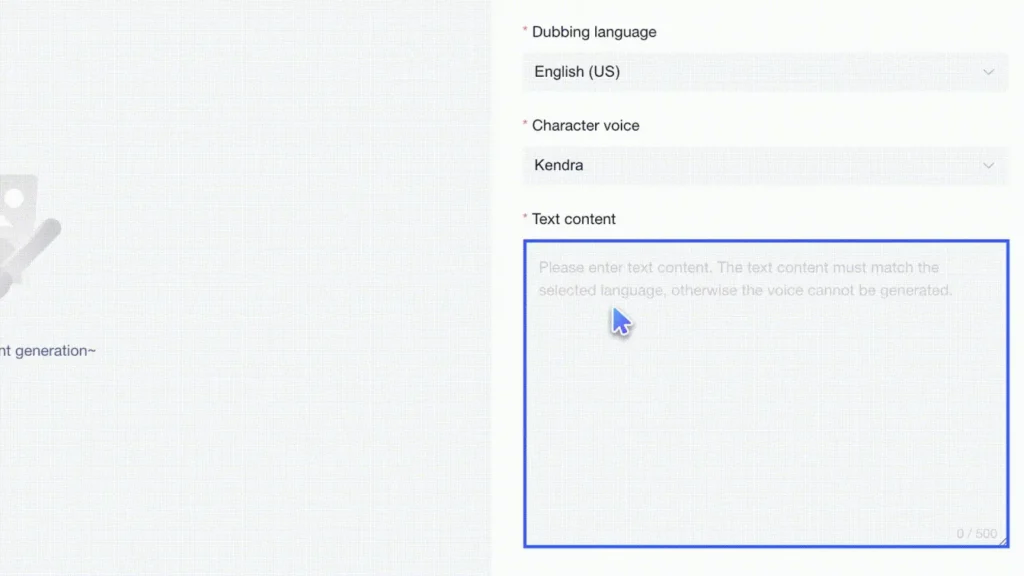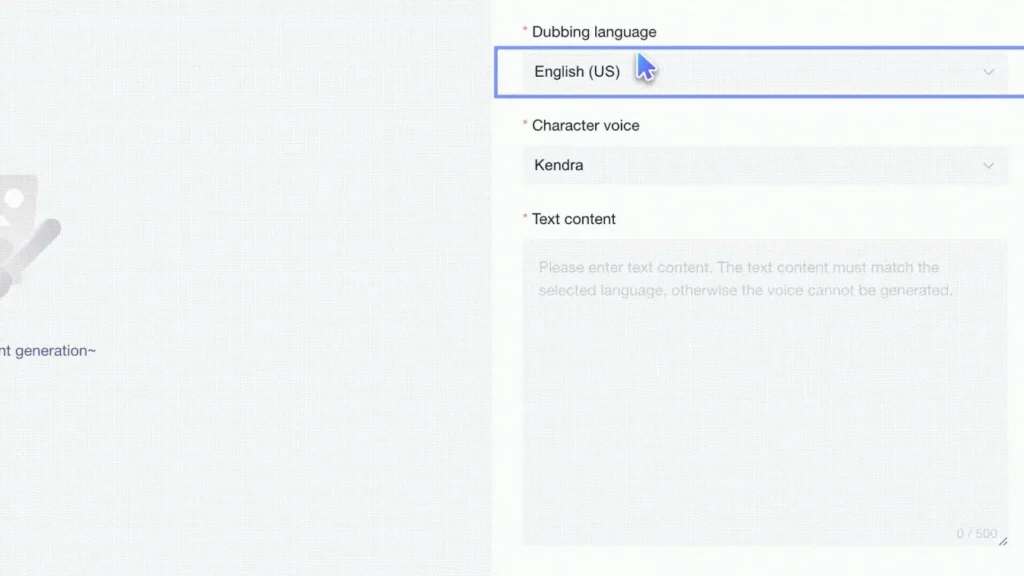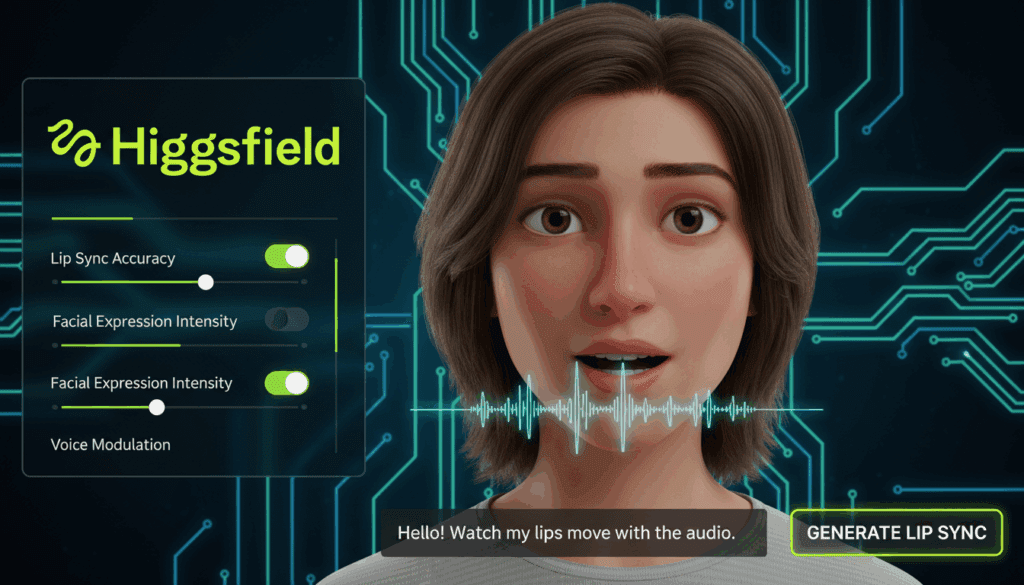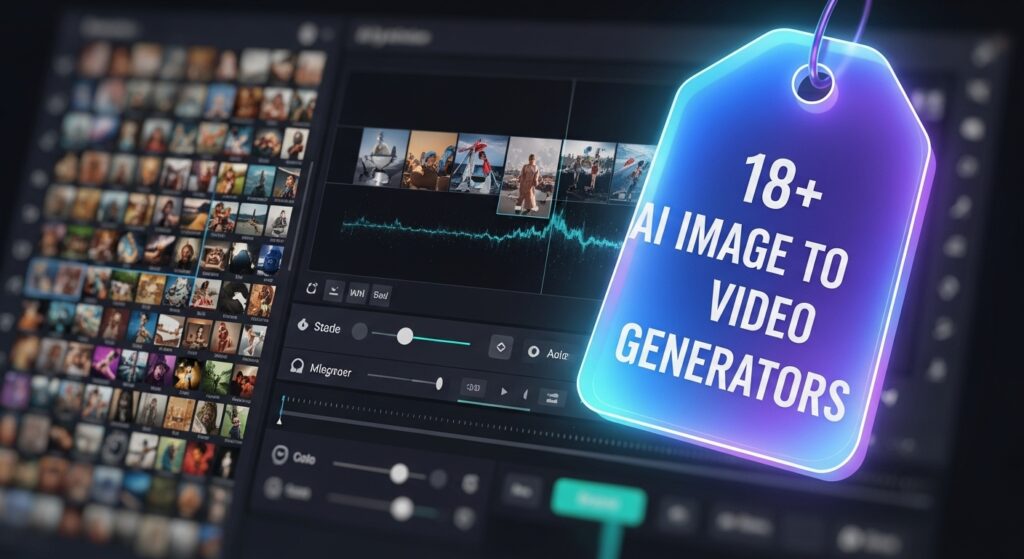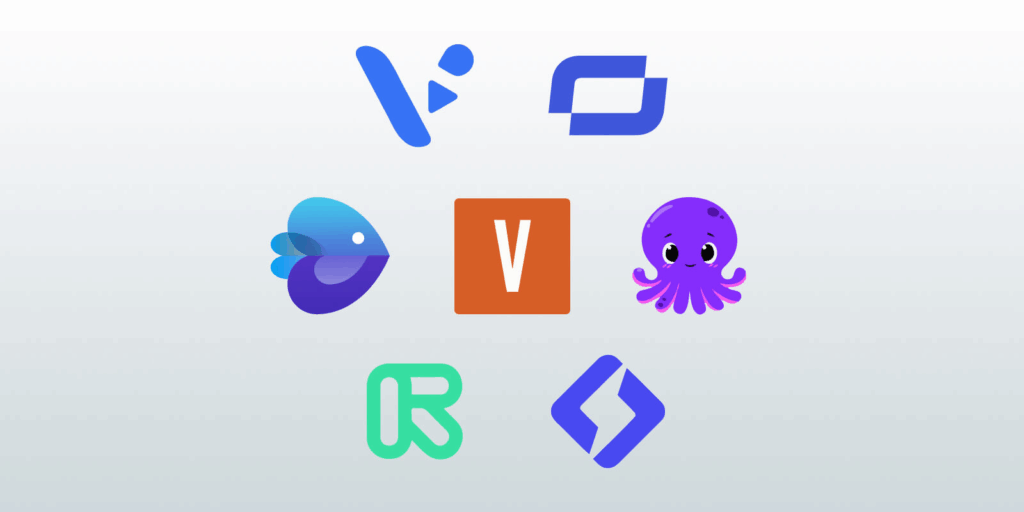
What is Text-to-Speech AI?
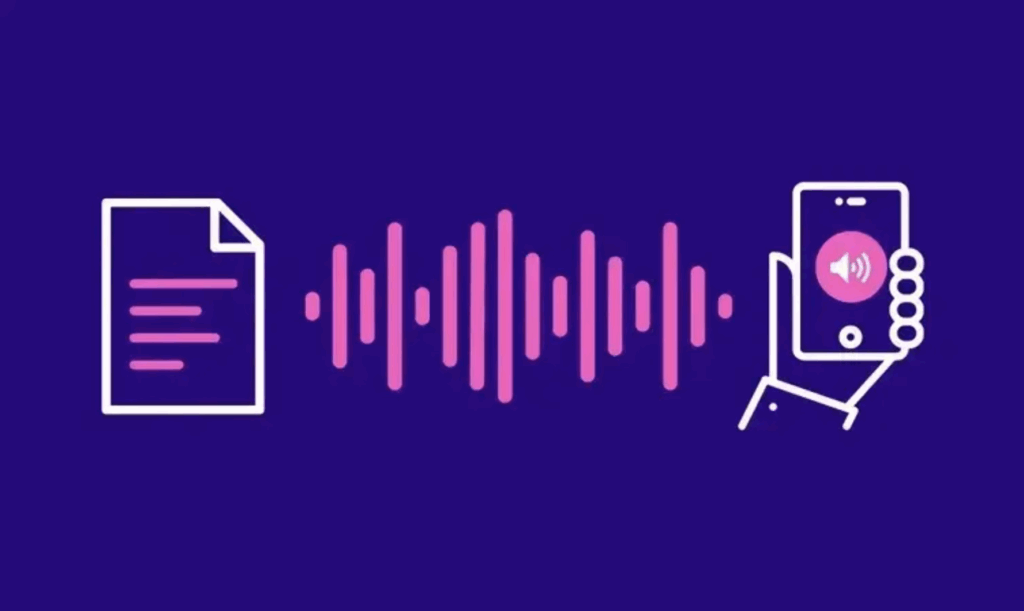
Text-to-Speech (TTS) AI refers to the use of artificial intelligence to convert written text into spoken audio. This is done using deep learning models that mimic human speech patterns, including tone, emotion, and cadence. Unlike robotic-sounding predecessors, today’s AI voices are remarkably natural.
Applications range from accessibility tools to marketing videos and voiceovers for digital content. TTS bridges the gap between written and spoken communication, making content more immersive and engaging.
Benefits of Using Text-to-Speech AI

TTS AI offers immense value across personal and professional contexts. Here are some standout benefits:
- Accessibility: Helps visually impaired users or individuals with reading difficulties engage with digital content.
- Productivity: Multitaskers can absorb information on the go, listening to reports or blogs while commuting.
- Content Expansion: Converts blogs, newsletters, and emails into engaging audio formats to reach wider audiences.
- Learning Aid: Students and language learners can improve their listening skills and pronunciation with multilingual TTS.
Using VidAU, you can not only generate natural voiceovers but also pair them with visuals for complete video storytelling.
Practical Applications of TTS AI

TTS AI finds applications across various fields:
● Education
TTS AI is a valuable tool for students. With it, students can quickly and easily create voice-overs for their projects and presentations. If students want to make a presentation in another language, those multilingual TTS platforms can help. Using such speech synthesis platforms, students can create voice-over videos that are perfectly synced with images, videos, and background music.
Before exams, students can utilise TTS AI to convert teaching resources, such as textbooks, worksheets, quizzes, and reading materials, into interactive audiovisual media. This can help them improve their learning efficiency. TTS AI also makes language learning more accessible. A beginner in Spanish, for instance, can listen to vocabulary and phrases pronounced correctly by TTS AI, which helps them practice pronunciation and improve their listening skills.
● Healthcare
TTS AI plays a significant role in healthcare, particularly for patients with communication disorders. It can read out medical instructions or reminders, ensuring that patients understand their treatment plans. In therapy sessions, TTS AI can be used to provide auditory feedback, aiding in speech therapy exercises. For example, a patient recovering from a stroke might use TTS AI to practice speaking and improve their speech clarity.
● Content Creation
For content creators, TTS AI is a time-saving asset. Bloggers can quickly convert their articles into audio format, reaching a wider audience. Podcasters can use TTS AI to generate voiceovers for their episodes without needing a professional voice actor. Video creators can also benefit, as they can add narration to their videos with minimal effort.
● Customer Service
Customer Service: TTS AI improves how customers feel. It makes automated phone systems sound more natural. These systems can answer questions and help customers easily. They make talking to customer service quicker and better. For example, if a person calls their bank, they’ll hear a friendly greeting from the TTS AI. It will tell them what choices they have. It can even answer easy questions. This means they don’t have to wait long. It makes customers happier with the service they get.
Top 5 Text-to-Speech AI Tools in 2025
With numerous TTS AI tools available, selecting the best can be challenging. Here are the top five TTS AI tools for 2025:
VidAU

A full creative suite that includes TTS, video creation, and editing tools. VidAU’s AI Voice Generator supports 20+ languages, with multiple expressive voice options. Ideal for content creators who need professional-level results in minutes.
| Pros | Cons |
| Wide array of natural voices | Voice cloning is only available on higher-tier plans |
| Built-in video editor for complete projects | |
| Great for global reach |
Pricing: Free, basic, and business tiers
Murf
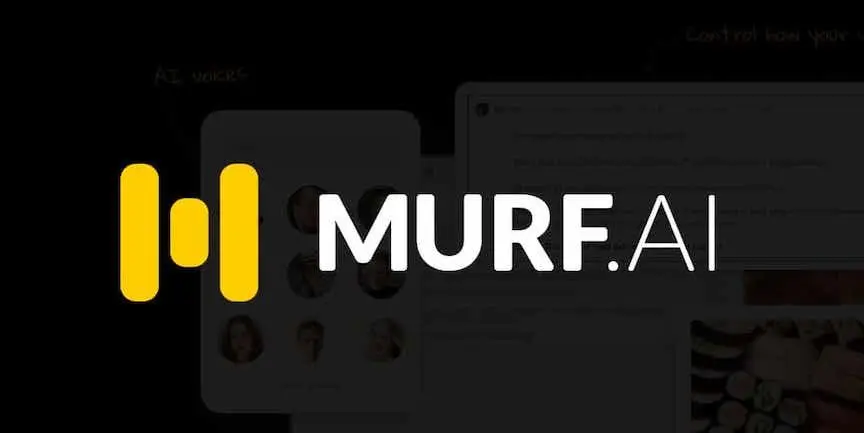
Murf is renowned for its extensive customisation options and great voice quality. It provides users with the ability to tweak pitch, speed, pause, and tone, ensuring the output matches the intended emotion and style. It can also incorporate media with the AI voiceover and change the voice styles.
ElevenLabs
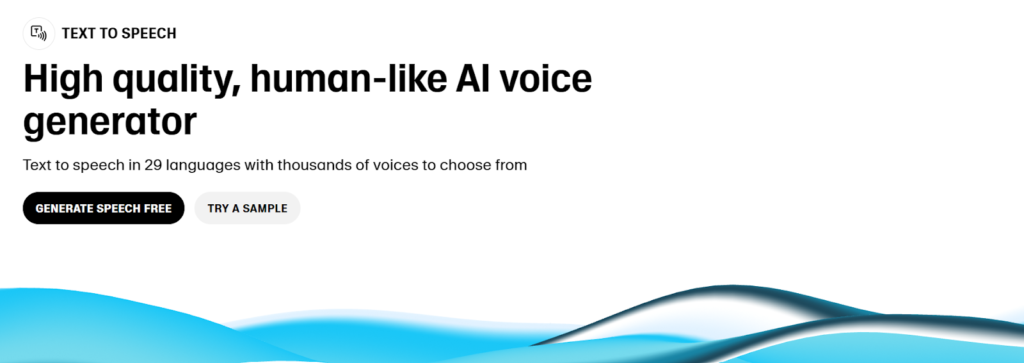
ElevenLabs can generate high-quality speech in different voices, styles, and languages. It renders human intonation and inflexions with fidelity. Its AI-driven platform is designed to mimic human speech patterns, making it a favourite among creators who need nuanced voiceovers.
Speechify
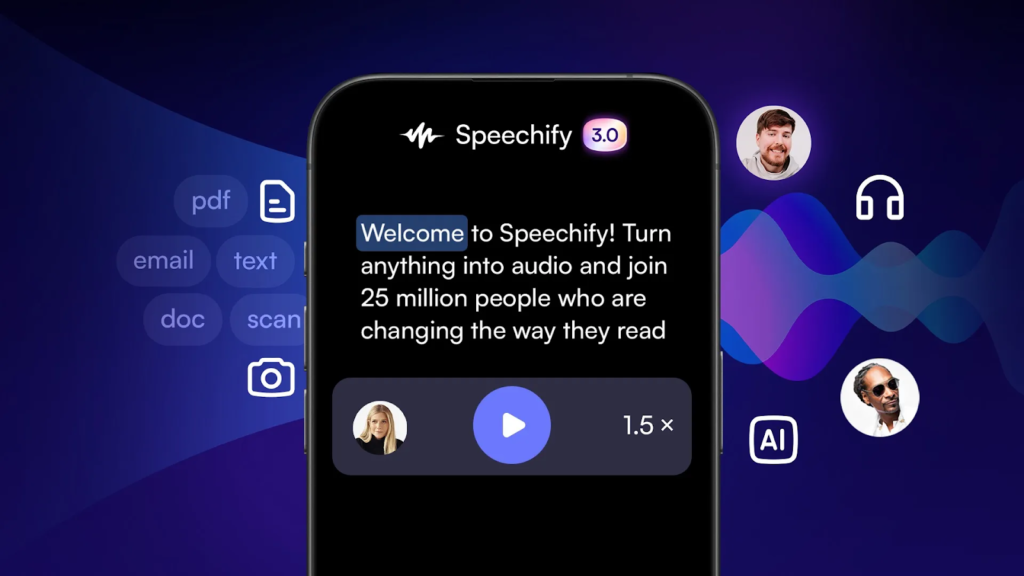
Speechify can convert text to an AI voice on Windows, Mac and mobile phones. that reads text aloud using a computer-generated text-to-speech voice. It also uses optical character recognition technology to turn physical books or printed text into an AI voice.
WellSaid

WellSaid is known for its focus on delivering high-quality voices. It offers different voice and content type options, making it suitable for diverse applications, from marketing videos to educational content. Its API also enables it to be used in different platforms.
Why Choose VidAU for Text-to-AI Voice?
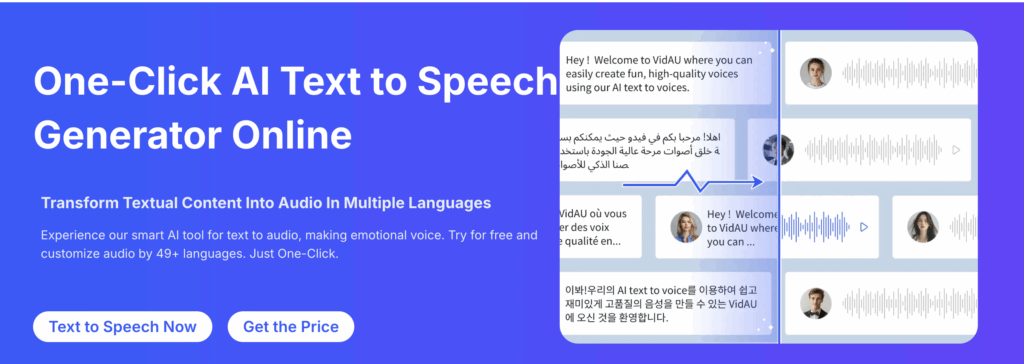
VidAU isn’t just another TTS platform. It’s an all-in-one text-to-voice and text-to-video solution made for creators, educators, and marketers.
With VidAU, you can:
- Convert text to voice in 20+ languages
- Match narration with animated visuals
- Add captions, transitions, and brand assets in one interface
Whether you’re creating YouTube tutorials, explainer videos, podcast intros, or ads, VidAU brings it all together.
